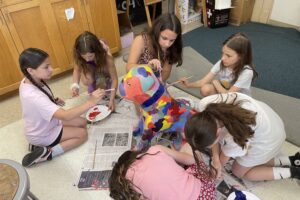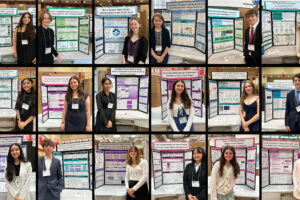It’s quite astounding that the Irvington School Board, after a landslide defeat of the fields referendum, thinks the main reason is the economy. I realize that the Board spent a great deal of time deliberating and is committed to fixing the field problem. Hopefully, however, the Irvington School Board does not retreat temporarily and propose this project as is, or a version thereof, in the future.
There were many equally compelling reasons for the defeat.
Below are my thoughts.
FIELD PLAN REVEAL:
I attended the two public forums that the Board of Education held in October. I now wonder if those meetings were held to make the taxpayers think that the School Board would be receptive to public opinion, because during those two sessions, there was an outpouring of very genuine concerns about the possible short- and long-term ill effects of artificial turf. The Board ignored those compassionate voices and, instead, dismissed public opinion and proposed only artificial turf, never giving voters the choice to vote for natural grass on Meszaros field. It appears that they were all in lockstep, deliberating since the 2006 field proposal defeat, reworking the plan with a hired (at taxpayers’ expense) consultant. Our School Board allowed themselves to be swayed by the consulting architect, who stood to gain by promoting the artificial turf, rather than listen to the citizens, the bearers of the cost, who were worried about the safety of the product. The Board was too committed to artificial turf to be objective. I think that is still the case. The public had only two opportunities in one week to speak their opinions, two months before the referendum. Nevertheless, there was a groundswell of communication via e-mail, phone and letters sent to local papers opposing the plan. After the overwhelming defeat, the Board’s remark, “that it is the economy,” demonstrates that they ignored what they heard and read from public expressions of concern.
HEALTH RISK :
Many of us in the community think sports are an integral part of school life, contrary to the Athletic Director’s remarks that we don’t. However, taxpayers had to weigh this proposal’s worth based on the specific facts in this referendum. We were asked to finance “make believe” grass, a composite of ground up rubber tires. As stated in the New York State Department of Health Report, it is a material that emits gases, crumb rubber, and reaches temperatures as high as 170 degrees; a product that has to be disinfected twice a month with chlorine.
Here’s a personal scenario to emphasize the health risk. My sons played lacrosse. Hypothetically, if my sons played on fake turf, I’d worry about the hazards of rubber crumbs getting on them and in their gear. Maybe they would ingest some and have to endure molten levels of heat on a hot day and breathe out gases. Which day would I have preferred them to play in regard to the twice monthly disinfecting routine? Would I prefer them to play the day before the field is disinfected, when built up bacteria is at maximum levels, or the day the field was disinfected with the residue and fumes of bleach? The answer: no day, no way! It’s shocking how the Board and school officials accept, without doubt, that artificial turf is not harmful short-term or long-term. It was the artificial turf proponents who did not budge or offer a natural alternative after so many knowledgeable people expressed their points of view both verbally and by writing convincing letters contradicting its safety.
ENVIRONMENTAL RISK:
Besides the health threat to field playing athletes, there is the detrimental effect on the environment. The required chlorine disinfectant wash has to drain somewhere. The field is carved into the side of a mountain so the routine chlorine field hose downs would seep down the long slope into plant and tree root systems and eventually seep into our beloved Hudson River twice a month for the field’s shelf life (five to ten years) and then the replacement’s life, on and on for decades to come. The EPA now bans certain insecticides, harmful weed eradicators, and certain fertilizers, but we would be allowed to flood our field with bleach every two weeks! Anything non-biodegradable is scorned now, but Irvington taxpayers were expected to patronize a company that makes a product the size of a football field, composed of ground-up truck tires, that never disintegrates. We’d have to dispose of a 120 yard long by 53 yard wide slab of used, compacted truck tires, that has to be dumped in a landfill in five to ten years, and continue that task for all our future rubber tire fields that have to be dumped in a landfill, forever. So besides the added tax burden, we would be major polluters!
COST PRESENT AND FUTURE:
Yes, the cost was a factor in the defeat of the proposal as well. Even without the current financial crisis, the field cost was exorbitant. The Board just plowed ahead with this referendum because they lost all objectivity with regard to what they ask taxpayers to pay for. I pointed out to the Board that we taxpayers have been very generous to the school by approving the $57 million dollar state-of-the-art new middle school in 2003. In spite of that, the Board keeps coming at us for more taxes, this time to finance an extravagant field renovation with artificial turf, lights, a new track surface, etc.
There were unknown potential costs that could greatly increase the initial cost. What if when constructing the sub-surface base and drainage system, they hit bedrock or ran into unforeseeable problems as many construction projects do? What if the drainage is inadequate and the field still floods or water run off causes flooding in neighboring areas or down to Broadway?
It was a 15-year bond to finance one part or both, the total package costing $6 million dollars. There was no future figure on the cost for hauling away the rubber field of grass when it was worn out. And what are the deciding factors that determine when it’s time to dispose of it? Does it get too “rubber crumby”? Also, given the fact that fake turf is not bio-degradable, would the EPA require a monetary penalty for its disposal in a landfill? And, no doubt, in five to ten years the replacement and labor for installation would cost even more. Didn’t the Board know and factor in all future costs? But the bold startling fact is that fake turf’s shelf life (as previously stated, five to ten years) is shorter than the years we would be paying for the 15-year bond! Didn’t the Board recognize the simple math of that?!!!! Didn’t they take into account the future revolving fuzzy math of still having to pay for the old pretend grass, well after it was dumped in a landfill? Then what? I guess float another fifteen year bond for a spanking new slab, thus burdening taxpayers with fuzzy math forever? And the Board said that natural grass is more expensive.
TAXPAYERS RESPOND:
Taxpayers should not be treated like “cash cows”. The referendum was held on December 17th – a dank, rainy, dreary day. Irvington school taxpayers came in droves to defeat this potential harmful product with a very costly price tag. It was one of the biggest voter turnouts ever, the results 1,358 against to 387 for, an avalanche! The Board foolishly is at fault for the defeat by not listening to “we the people”. Had we voters been given the option to fix the field drainage and resurface it with natural grass, without lights and a new track surface, at a minimum cost, it had a much better chance of passing. The athletes who play on the field are surely disappointed. Let our students understand and see the big picture in terms of life’s choices. When one factors in all of the school taxpayers in Irvington, many with no children in the school system, and then the entire school population elementary through high school, only students who play a field sport would benefit from a $3.5 million and/or $2. 5 million, total $6 million field renovation.
SUGGESTIONS AND EXPECTATIONS:
How much more useful if the Irvington School Board’s time was spent being creative and inviting volunteers in the community, including high school students, to collaborate on how to improve the field at a minimal cost and focus on innovative scholastic programs, or mentoring programs. What a wonderful way to prepare our students for their adult career lives.
Irvington must focus on attracting home buyers to our village. I sold real estate for ten years. The prevailing reason young families want to buy a home in a community is based on the school’s academic programs and SAT.scores. Never did a buyer ask me about the condition of a field. They also weigh the tax burden. Yes, exercise and team play are important aspects of school, but many schools have weathered fields that get soggy when it rains, it’s grass!!!
Taxes are escalating, the state is almost bankrupt; therefore, financial state aid is bound to diminish. I expect our School Board to be prudent in regard to the financial perils that lie ahead. Our taxes should be allocated where every student can benefit all the way from elementary school to high school, not just a few in relation to the entire student body.
SUMMARY:
The field defeat is an invaluable lesson for our young students and adult governing bodies in our village. The message is the title of a pop culture song by the Rolling Stones…”You Can’t Always Get What You Want.”
This should be a wake-up call and a battle cry for citizens to be aware and respond, as we in Irvington did with our votes, by rejecting a problematic, short-sighted, costly plan that officials propose for us to finance . Enough! This referendum defeat was democracy at its best!
Linda Leary / Irvington







